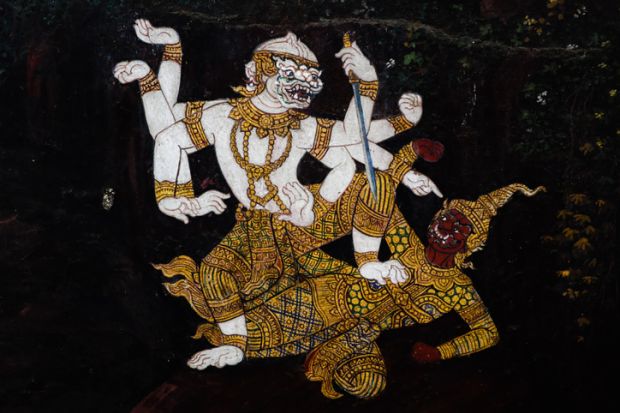Students are in uproar after a prominent Thai institution said it would remove the president of its students’ union for inviting anti-monarchy speakers to one of its events.
A year ago, 25-year-old Netiwit Chotiphatphaisal won the presidency of his students’ union in a landslide, garnering more than 10,000 of roughly 14,000 votes. Now, Chulalongkorn University, the oldest higher education institution in Thailand, is forcing him out of his post.
The decision has prompted statements of support for the students’ union leader among dozens of Thai student groups, but the issue itself goes beyond campuses. It illustrates a growing fissure playing out across the country between its conservative elite and the younger generation, recently emboldened to dissent.
Thailand experienced upheaval as recently as 2014, when its military overthrew an elected government for the second time in a decade. In the years since, students have become an active presence in politics, staging mass protests against the Thai monarchy and military. But academia – and society – has been slower to change.
In July 2021, Mr Chotiphatphaisal invited Thai activists to speak at an online freshers’ orientation, and one of them made an obscene hand gesture to administrators. The gesture and the choice of speakers were not well received.
The university claims that Mr Chotiphatphaisal disrespected Thai culture, but he stood by the move. “When you think about freshman [induction] ceremonies in Thailand, you think of old people who say things about nostalgia and their own days at university, or something that’s not very relevant to student lives,” he said.
This is not the first time he has courted controversy. In 2017, when he was a fresher himself, he was removed as chair of the student council after he led a walkout by eight students from the university event where learners typically bow before the statue of Thailand’s King Rama V – a decision that made headlines across the country.
Mr Chotiphatphaisal still bristled at the “humiliation of prostrating” before the king. “We want to say he’s also human, not a celestial being that you cannot criticise,” he said.
But these moves have not gained him popularity with those in the university administration, which is moving to deduct his merit points. In a system that dates back to the 1980s, every Thai student is given an allotment of points when they start university; the points can be deducted for various infractions, from breaking the dress code to disrespecting faculty. Students need more than 80 points to hold office.
While the administration may succeed in removing the outspoken students’ union head, Mr Chotiphatphaisal and his supporters said the move reflected poorly on the university.
An administrator who spoke with Times Higher Education on condition of anonymity said the university’s actions revealed its “true position” on freedom of speech, which “runs counter to its efforts to become one of the world’s leading universities”.
“Furthermore, it demonstrates that the administrators lag far behind the students’ expectations and worldview,” they said, adding that since the coup in 2014, the university has prohibited all political academic panels and student activities.
“The administrators should stay out of students’ affairs and focus on promoting academic quality. The only thing a university should do for its students is provide them with knowledge and a learning environment,” the administrator said.
As for Mr Chotiphatphaisal, he may be stepping down, but he is not about to leave quietly.
“Although I am no longer in the office…I still support fully many kinds of freedom of expression, including freedom to disagree, freedom of satire, and freedom to offend, [including] giving [them the] middle finger,” he said.




